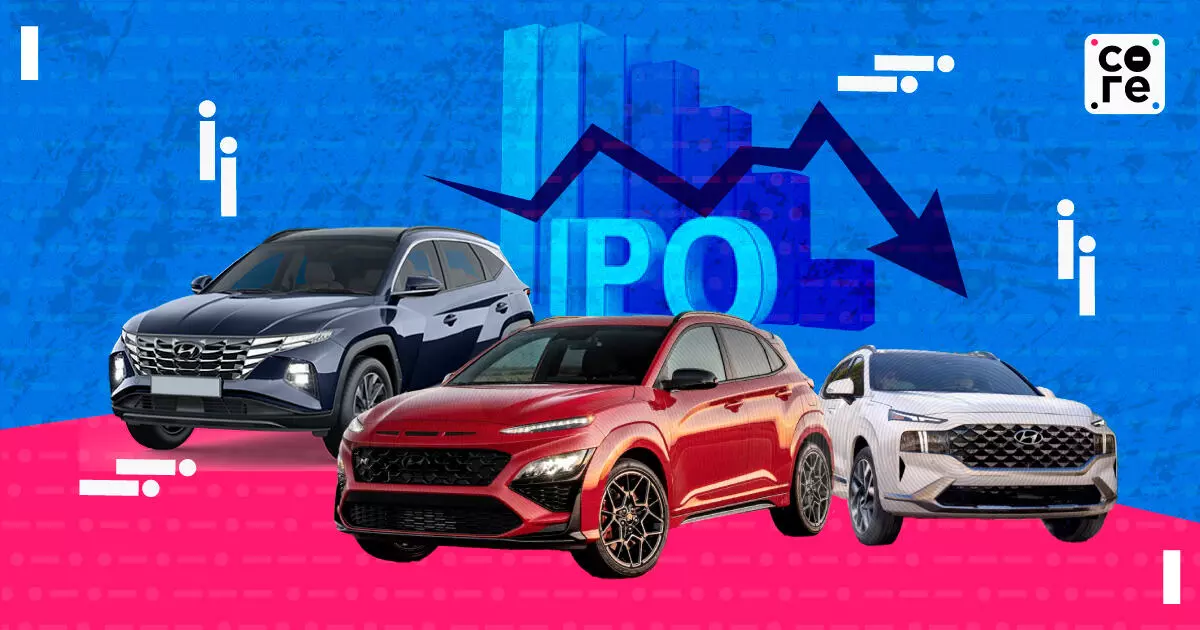
Why Hyundai’s Mega IPO Has Flopped
What could South Korean automaker Hyundai Motor have been thinking before pricing its initial public offer (IPO)?

By present standards of retail investor dynamics, Hyundai Motor’s mega Rs 28,000 crore was a flop. The retail investor part is important because while the issue as a whole was oversubscribed 2.37 times and thus sailed through, it was institutional investors who flexed their muscles.
Importantly, the retail section was only 50% subscribed while the non-institutional investor segment saw a 60% response. It would be safe to say looking at the overall auto market conditions right now, where cars are not exactly flying off showroom shelves and the flattish mood in the stock markets, the Hyundai stock will either list flat or drop after listing.
It would be a near miracle if it starts climbing after listing, at least in the short term. There was some trepidation around this listing, largely because of sentiments. First, on the fundamental side, the financials were seen as strong, the track record sound and a clear recognition that this was a strong number two player in India’s passenger vehicle market battling it out with the number one, the Koreans versus the Japanese Maruti Suzuki. But when it comes to sentiment, big IPOs are usually a sign of a market peaking out even if there is no direct correlation.
The bigger factor is the perception of listing gains. A study by regulator Securities and Exchange Board of India last month said that 54% of IPO shares in value terms were sold within a week by non-anchor investors. This study was...
By present standards of retail investor dynamics, Hyundai Motor’s mega Rs 28,000 crore was a flop. The retail investor part is important because while the issue as a whole was oversubscribed 2.37 times and thus sailed through, it was institutional investors who flexed their muscles.
Importantly, the retail section was only 50% subscribed while the non-institutional investor segment saw a 60% response. It would be safe to say looking at the overall auto market conditions right now, where cars are not exactly flying off showroom shelves and the flattish mood in the stock markets, the Hyundai stock will either list flat or drop after listing.
It would be a near miracle if it starts climbing after listing, at least in the short term. There was some trepidation around this listing, largely because of sentiments. First, on the fundamental side, the financials were seen as strong, the track record sound and a clear recognition that this was a strong number two player in India’s passenger vehicle market battling it out with the number one, the Koreans versus the Japanese Maruti Suzuki. But when it comes to sentiment, big IPOs are usually a sign of a market peaking out even if there is no direct correlation.
The bigger factor is the perception of listing gains. A study by regulator Securities and Exchange Board of India last month said that 54% of IPO shares in value terms were sold within a week by non-anchor investors. This study was based on data from 144 mainboard IPOs between April 2021 and December 2023.
Individual investors sold 67.6% of shares by value allotted to them within a week when returns were more than 20% and sold 23.3% of shares by value when returns were negative, the study said. Most investors who punt on IPOs are comfortable placing their bets when the issues are priced in the sub-Rs 400 range per share.
This applies to some extent to the secondary market as well, being one reason why small caps and mid caps have seen such huge flare-ups in the last couple of years. A price of Rs 1,960 per share or thereabouts is a deterrent to most such investors who may not be willing to cobble together funds if they don’t see a listing pop. And more likely would not thus venture to even buy a higher priced offer. Not surprisingly, they gave it a pass.
Possibly, Hyundai could have priced the offer lower, going against the advice of its investment bankers. The competition for Hyundai is with Maruti Suzuki, the number one player, and it thus priced the stock aggressively. Hyundai’s cars have always been well-priced for value-conscious Indian customers. Starting from Santro in 1998, which also explains the Korean giant’s success in the Indian market. Possibly Hyundai forgot to take a leaf from its own book when it came to pricing this IPO.
What could South Korean automaker Hyundai Motor have been thinking before pricing its initial public offer (IPO)?

